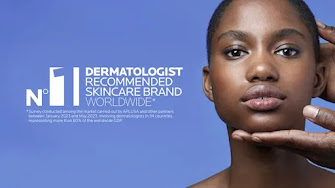Avene data analysis
Avene is a renowned skincare brand specialised in solutions for sensitive skin, powered by its unique Thermal Spring Water sourced from the Cévennes Mountains in France.
Here’s a analysis and summary of findings:
Demographics
The majority of respondents are aged 25-34, representing the core consumer group. Female respondents significantly outnumber males, indicating that the brand's target audience is primarily women.
Consumer Behaviour

Combination and oily skin types dominate, highlighting the demand for products catering to these skin concerns. Most respondents have been using the brand for 1-6 months, suggesting potential growth among new users.
Satisfaction & Perception
Social media and recommendations are the most effective awareness drivers. Increasing digital advertising efforts is recommended. Most users associate the brand with "high quality" and "professionalism," but some suggest improving perceptions of efficacy. Social media campaigns are effective, but offline activities and experiential marketing (e.g., skin testing) hold untapped potential. Expanding collaborations with brand ambassadors or key opinion leaders (KOLs) can help increase brand recognition.
Overall satisfaction is high, but a few users reported areas for improvement, such as "allergic reactions" or insufficient efficacy. Improving efficacy and focusing on natural ingredients are primary areas for enhancement.
Competitive Analysis
Respondents prefer effective yet gentle skincare products, especially for sensitive skin and daily hydration needs. La Roche-Posay and CeraVe are the main competitors, enjoying strong market influence. Many consumers use Avene alongside these competitors, indicating competition but also potential loyalty opportunities. Compared to competitors like La Roche-Posay and CeraVe, further differentiation of the product lineup is needed.
Strategies and Recommendations
1.Target Audience: Focus on women aged 25-34 while exploring potential in other age groups.
2.Product Development: Develop effective solutions for combination and oily skin, and enhance compatibility for sensitive skin.
3.Marketing Strategy: Strengthen digital campaigns and brand storytelling to stand out from competitors.
4.Customer Engagement: Implement loyalty programs or regular follow-ups to improve retention and encourage repeat purchases.
5.Product Messaging: Address allergy-related concerns, optimize formulations, and emphasize efficacy in marketing communications.
Survey link: https://forms.gle/hbBd3d2SSFWc1cTeA









Comments
Post a Comment